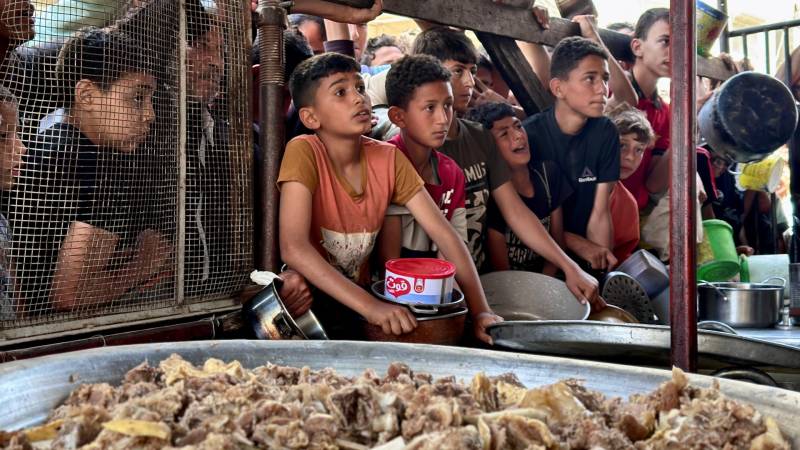Humanitarian aid groups are reporting “unprecedented” levels of starvation for over 2 million people in Gaza, after nearly eight months of Israeli military bombardment and blockades. Another 5 million people are estimated to face “acute” food shortage in Haiti between March and June, and according to the United Nations, the threat of famine looms for 18 million people in east Africa as Sudan enters its second year of civil war. These hunger crises could have long-lasting effects; according to biologist and early development specialist Tessa Roseboom, the impacts of near starvation are likely to be experienced by generations to come. Her research focuses on people who were born during or shortly after the Dutch “Hunger Winter,” a result of German blockades in the final months of World War II. We speak with Roseboom about her research and its implications for people experiencing starvation in current conflicts around the world.
Dutch Research Team Recounts the Long-Term Effects of Starvation

Children in Rafah city queue to receive a bowl of food for their families from charity organizations, in Rafah, Gaza on May 3, 2024. (Doaa Albaz/Anadolu via Getty Images)
Guests:
Abby Maxman, president and CEO, Oxfam America
Dr. Tessa Roseboom, professor of early development and health, Amsterdam UMC, University of Amsterdam
Sponsored